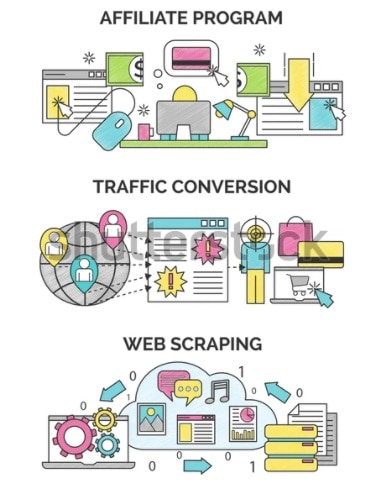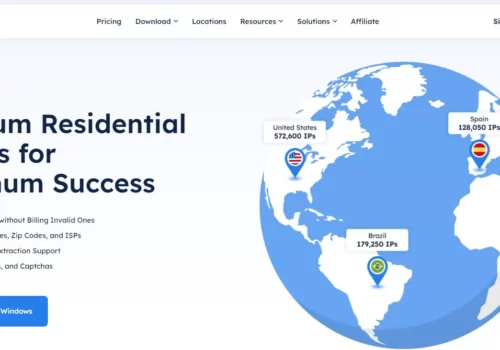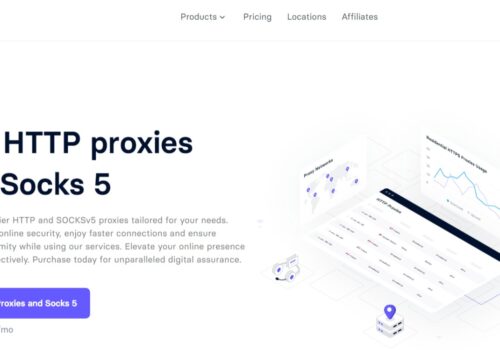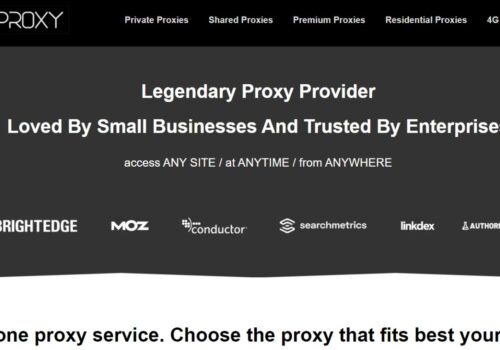In this article, I will compare Web Crawling Vs Web Scraping 2024
Web crawling, also known as indexing, is a process that utilizes bots, also known as crawlers, to index the content on a website. Crawling is a term that refers to what search engines perform
. It’s all about seeing and indexing a page in its entirety. When a bot crawls a website, it traverses every page and link, all the way to the website’s last line, seeking ANY information.
Web crawlers are mostly employed by major search engines such as Google, Bing, and Yahoo, as well as statistics organizations and massive web aggregators. Web crawling collects general data, but web scraping focuses on particular data set fragments.
Web scraping sometimes referred to as web data extraction is similar to web crawling in that it detects and locates the desired data on web pages. The critical distinction is that with online scraping, we know the precise data set identifier, for example, an HTML element structure for web pages that are being fixed and from which data must be retrieved.
Web scraping is a process that automates the extraction of certain data sets via the use of bots, often known as scrapers.’ Once the appropriate data has been gathered, it may be utilized for comparison, verification, and analysis in accordance with the demands and objectives of a particular organization.
What Is Web Crawling?
A web crawler, often known as a spider or spiderbot and sometimes abbreviated as a crawler, is an Internet bot that browses the World Wide Web in a systematic manner, generally run by search engines for the purpose of Web indexing (web spidering).
Web search engines and certain other websites make use of web crawling or spidering software to maintain their own web content or indexes of the web content of other websites. Web crawlers save pages for processing by a search engine, which indexes the pages for easier user navigation.
Crawlers deplete the resources of visited systems and often visit uninvited sites. When big collections of pages are visited, scheduling, load, and “politeness” concerns arise.
There are mechanisms in place for public sites that do not desire to be crawled to communicate this to the crawling agent. For instance, inserting a robots.txt file instructs bots to index just certain sections of a website or none at all.
The amount of Internet pages is enormous; even the most powerful crawlers fall short of creating an exhaustive index. As a consequence, search engines struggled in the early years of the World Wide Web, before 2000, to provide meaningful search results.
Today, pertinent findings are virtually instantaneous. Crawlers have the capability of validating hyperlinks and HTML code. Additionally, they are suitable for web scraping and data-driven programming.
What Is Web Scraping?
Web scraping, also known as web harvesting or web data extraction, is a kind of data scraping that is used to gather information from websites. The web scraping software may directly access the World Wide Web through HTTP or a web browser.
Online scraping is the process of obtaining and extracting information from a web page. Fetching is the process of downloading a page (which a browser does when a user views a page). Thus, web crawling is a critical component of web scraping, since it allows for the extraction of pages for further processing. Once retrieved, extraction may begin.
A page’s content may be analyzed, searched, and reformatted, as well as its data transferred to a spreadsheet or imported into a database. Web scrapers often extract data from a website in order to utilize it for another purpose.
For instance, you may locate and copy names and telephone numbers, businesses and their URLs, or e-mail addresses to a list (contact scraping).
Web pages are created using markup languages based on text (HTML and XHTML) and typically include a plethora of helpful material in text format. However, the majority of online sites are meant for human users, not for automated usage.
As a consequence, specific tools and software for scraping web pages have been created. Online scraping is a more recent technique that involves monitoring data flows from web servers.
For instance, JSON is often used as a means for exchanging data between the client and the webserver.
Certain websites use anti-web scraping measures, such as identifying and disabling bots from crawling (viewing) their pages. As a result, web-scraping systems depend on DOM parsing, computer vision, and natural language processing methods to emulate human surfing in order to collect web page content for offline analysis.
Major Benefits of Web Crawling
Here are benefits of web crawling:
1. Analysis and curation of content:
Another significant advantage of website crawlers is content analysis and curation. By tracking user activity, web crawlers may be used to get a better knowledge of user behavior. By scraping different data, web crawlers maintain track of users’ behavior. Assisting you in comprehending their actions.
2. Pricing and Availability of Suppliers:
If your line of business requires you to purchase from various providers. It is more probable that you will regularly visit your suppliers’ websites to compare and contrast availability, price, and other factors.
Web Crawler enables you to quickly acquire and compare this information without having to visit their individual websites. This will not only alleviate your tension and save you time. Additionally, it will ensure that you do not miss out on any amazing discounts.
3. Target Listing:
Web crawlers enable you to create a target list of businesses or individual contacts for various objectives. Crawler enables you to obtain phone numbers, addresses, and email addresses. Additionally, it may compile a list of targeted websites that provide relevant business listings.
4. competitive Pricing:
You may be experiencing problems determining to price for your items or services for whatever reason. It’s considerably more challenging when you’re having problems pricing many things.
However, using Web Crawler, you can simply find the price of your rivals. Allowing you to establish competitive pricing for your customers.
5. Assist You in Obtaining Information About What Is Being Said About You and Your Competitors on Social Media
Do you ever wonder what your company’s name is being discussed on social media? Having this information readily available is one of the advantages of web crawlers. Web crawlers may assist you in obtaining information about what is being said about you on social media.
That is not all. It enables you to keep track of customer comments made on other websites. Web crawlers may assist in maintaining a presence on industry forums, news websites, and social media channels. It assists you in determining what is being stated about your firm and competition.
6. Leads Generation:
Discussing the advantages of web crawlers would be incomplete without mentioning lead creation. If you operate a firm that relies on data from your rivals’ websites to earn more money.
Then you should take into account Web Crawlers. It enables you to get this information more quickly. As a result, your income will increase.
Assume you own a firm that specializes in job placement. You must while businesses are employing to remain viable. Additionally, you must contact these businesses and assist them in filling open jobs with qualified people.
To do this, you must pursue leads from a variety of social media venues, including LinkedIn,
Quora, Twitter, and other public job boards. Additionally, you must locate any new job posts and maybe information about organizations with open positions. You may simply do this using a Web crawler.
7. Maintaining Current Industry Trends:
Maintaining current knowledge of market trends is critical for developing values and trustworthiness. Additionally, it demonstrates to the public that your business is potential. Business leaders realize the critical nature of staying current with industry advancements.
Make time to keep educated regardless of the situation of your firm. With access to a massive amount of data from a variety of sources. Web crawlers enable you to monitor industry trends.
8. Keeping an Eye on the Competition:
This may be a significant benefit, particularly for those facing stiff competition in their field. Sun Tzu, the Chinese commander, and military strategist, once said, “If you understand your adversaries and yourself, you will never be beaten.”
To succeed in your industry, you must do a competitive analysis. You must learn what works for them. Their price structures, marketing techniques, and so on.
Web Crawlers enable you to easily harvest data from various rivals’ websites. This allows you and your workers to free up time for more productive duties. The fact that the data are extracted automatically gives you the advantage of having access to large amounts of data.
Major Benefits of Using Web Scraping
Here are the benefits of Web scraping:
1. Effective Data Management:
Using automated software and applications to save data saves your business or staff time copying and pasting data. As a result, individuals may devote more time to artistic endeavors, for example.
Rather than this arduous process, web scraping enables you to choose to acquire data from numerous websites and then correctly capture it using the appropriate tools. Additionally, storing data utilizing automated software and programs protects the security of your information.
2. Accuracy of Data:
Web scraping services are not only fast but also precise. Human error is often an issue while executing a work manually, which might result in more significant difficulties later. As a consequence, proper data extraction is crucial for any sort of information.
As we all know, human error is often a factor when executing a work manually, which may result in more significant difficulties later. However, when it comes to web scraping, this is not possible. Or it occurs in very modest amounts that are readily remedied.
3. Speed:
Additionally, it’s important to note the speed with which web scraping services execute tasks. Consider the possibility of completing a scraping job that would normally take weeks in a matter of hours. However, this is subject to the complexity of the projects, resources, and technologies used.
4. Low Upkeep:
When it comes to maintenance, the cost is often overlooked when implementing new services. Fortunately, online scraping methods are low-maintenance. As a result, in the long run, services, and budgets will remain relatively stable in maintenance.
5. Simple to Implement:
When a website scraping service starts collecting data, you should be certain that the data is coming from various websites, not just one. It is feasible to accumulate a great amount of data with a minimal cost to assist you in extracting the most value from it.
6. Cost-Effective:
Manual data extraction is a costly job that requires a large crew and a sizable budget. Nonetheless, online scraping and various other digital tools have addressed this issue.
The many services available on the market do this while being cost-effective and budget-friendly. However, it is entirely dependent on the volume of data required, the effectiveness of the extraction tools required, and your aims.
To minimize expenses, a web scraping API is one of the most often used web scraping methods (in this case, I have prepared a special section in which I talk more about them with a focus on the pros and cons).
7. Automation:
The primary advantage of online scraping is the development of technologies that have reduced data extraction from many websites to a few clicks.
Before this technique, data extraction was possible, but it was a painful and time-consuming procedure. Consider someone who is required to copy and paste text, photos, or other data daily – what a time-consuming task!
Fortunately, online scraping technologies have made extracting data in big numbers easy and fast.
Quick Links
FAQs On Web Crawling Vs Web Scraping
🙋How are web scraping and web crawling different?
A Web Crawler will often traverse the whole of a website, rather than just a collection of pages. On the other hand, web scraping focuses on a particular collection of data on a website. In summary, Web Scraping is considerably more targeted and concentrated than Web Crawling, which will search and retrieve all data on a website.
🤔What is the purpose of web crawling?
A web crawler, or spider, is a sort of bot used by search engines such as Google and Bing. Their aim is to index the content of websites located across the Internet for them to appear in search engine results.
❓What is an example of a web crawler?
For instance, Google’s primary crawler, Googlebot, does both mobile and desktop crawling. However, there are various more Google bots, including Googlebot Images, Videos, Googlebot News, and AdsBot. Here are a few other web crawlers you may encounter: DuckDuckBot is a companion application to DuckDuckGo.
👉Is API web scraping permissible?
Through the use of web scraping tools, you may harvest data from any website. On the other hand, APIs provide immediate access to the data that you want. Web scraping allows you to obtain data in these instances as long as it is published on a website.
😮How tough is it to scrape the web?
If you are designing web scraping agents for a large number of distinct websites, you will likely discover that around 50% of the websites are really simple, 30% are moderately complex, and 20% are quite difficult. Extracting useful data will be essentially impossible for a tiny proportion.
👍Is Google scraping legal?
Although Google does not prosecute scrapers, it employs a variety of defensive techniques that make scraping their results difficult, even when the scraping program is genuinely mimicking a standard web browser.
Conclusion: Web Crawling Vs Web Scraping 2024
Only the most slothful individual does not talk about Big data, but he has a rudimentary understanding of what it is and how it works. Let’s begin with the most basic — nomenclature. Big data is a term that refers to a collection of tools, methodologies, and methods for processing structured and unstructured data to utilize it for specified activities and goals.
After a time, the most precious commodity on the planet is information.
Clifford Lynch, the editor of Nature, coined the phrase “big data” in 2008 in a special issue devoted to the accelerating rise of global information volumes. Although, of course, big data existed already. According to experts, most data streams above 100 GB daily are classified as big data.
Today, this simple phrase conceals just two words: data storage and processing.
Big Data is a socio-economic phenomenon in the contemporary world tied to the emergence of new technology capabilities for processing massive amounts of data.
A classic example of big data is information generated by numerous physical scientific setups, such as the Large Hadron Collider, which continuously generates enormous amounts of data. The installation creates massive volumes of data constantly, and scientists address several issues in tandem with their assistance.
The emergence of big data in public space occurred because these data impacted practically everyone, not only the scientific community, where such issues had been resolved for a long time.
The term “Big Data” entered the public arena of technology when discussing a very particular figure — the planet’s population. 7 billion are gathered via social media platforms and other people-aggregating programs.
YouTube and Facebook have billions of users and conduct many processes concurrently. In this example, the data flow is a result of user activity.
For instance, material from the same YouTube hosting service is sent throughout the network. Processing includes not only interpretation but also the capacity to appropriately process each of these activities, that is, to place them in the appropriate location and to ensure that this data is rapidly accessible to each user since social networks do not tolerate expectations.
With so much information available, the challenge is locating and comprehending the necessary information. This work seems impossible, yet it is fairly simple to do utilizing web crawling and web scraping technologies.
Web crawling and web scraping data are required for big data analytics, machine learning, search engine indexing, and other fields of current data operations. The phrases web crawling and web scraping are sometimes used interchangeably, and although they are closely linked, the two processes are distinct.
A web crawler, a “spider,” is a self-contained bot that methodically explores the Internet for indexing and content discovery, following internal connections on web pages.
The word “crawler” refers to a program’s capacity to traverse online sites autonomously, sometimes even without a clearly stated end goal or objective, investigating what a site or network has to offer indefinitely.
Search engines such as Google, Bing, and others actively employ web crawlers to extract content for a URL, check for other links on this page, and get the URLs for these additional connections.
On the other hand, web scraping is the process of obtaining particular data. In contrast to online crawling, a web scraper looks for particular data on specific websites or pages.
Web crawling essentially copies what is already there, but web scraping collects particular data for analysis or to generate something new. However, to execute online scraping, you must first undertake web crawling to get the necessary information. Data crawling involves scraping, such as storing the web page’s keywords, photos, and URLs.
Web crawling is what Google, Yahoo, and Bing, among others, do when they search for information. Web scraping is mostly used to collect data from specialized websites, such as stock market data, business leads, and supplier product scraping.






